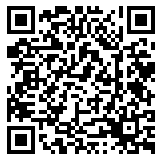|
The time has already come for another dose of procedural philosophy.
|
Ethics is the study of principles which dictate the actions of rational actors. Some will note that this closely parallels some people's definition of economics. This is not an accident, but this phenomenon will have to be addressed later. There is a glut of ethical theories which assume different premises and result in wildly different prescriptions. This is a problem for an individual who is genuinely concerned with pursuing an absolute truth by which to live. Being one such person, I must admit I'm still searching; but I can help others make it as far as I have and ask others to do the same for me.
“But wait, ain't you one o' dem Catholic fellers?” Yes, I am. The Church has a pretty solid grasp on it's doctrine and dogma (of which there is surprisingly little) and has built an ethics on top of that, something akin to a divine-law-meets-metaphysical-utilitarianism to which it appeals in every ethical discussion. One will notice that I do not advocate a moral stance which violates the doctrinal positions of the Church. I am fortunate that my quest for the truth has not yet forced me to choose between my own faculty of reason and the divine law of my faith. One will also notice that I staunchly oppose certain modern positions of the Church, especially in cases surrounding “divine right of kings” and compromise with injustice, such as “You have to pay taxes, because of the politically expedient manner in which we interpret 'Epistle to Diognetus', a letter written thousands of years ago.” (CCC-2240) What I am trying to say here is that “God said so” is never sufficient justification for one's actions, but what “God said so” may nonetheless be rationally justifiable.
That tangent segues nicely to where we are going today. Ethics operates identically to the method outlined in “Paradigmatic Awareness” in many ways, with some variation. As the numerous postmodern moral nihilists are wont to point out, ethics faces an important problem: the is/ought divide. This problem, popularized by Hume, essentially points out that objective material knowledge of what is does not give rise to ethical prescription without first approaching what is with a subjective value assessment, an ought. This is where the procedure outlined in “Paradigmatic Awareness” becomes crucial.
Simply put, I must determine by way of intuition and abduction from what is to what I (should) value. Ultimately, anything could conceivably be the basis of ethical reasoning; hedonism, consequentialism, stoicism, legalism, virtue ethics, divine law, statism, nihilism, and anarchism are all predicated on different values and represent a fraction of existing ethical frameworks. Many are compatible with each other; as a matter of fact, most ethical frameworks are ultimately either nihilist or teleological in nature and tend to compliment others of the same nature.
Ethics, really, is the ultimate product of philosophy. Philosophy can answer any question, “How did the universe come to be?” “What is it made of?” “How can we know anything?”, but without answering “Why should I care?” it has no real utility. I propose that the best answer to “Why should I care?” is “because, if this worldview is factually true, you ought to do X and here is why.”
Of course, an ethics which is too esoteric or complex for common application and immediate results is as equally useless as a philosophy with no ethics whatsoever. This is where rules become attractive; “thou shalt not” and “always do” are certainly the result of most or all ethics. For instance, if I were a Kantian (I am NOT), I would value the rationality and identity of individuals, which results in the mandate that people be ever treated as ends only and never means; followed to its logical conclusion, one could say, “Thou shalt not enslave others.” Those that lack the faculties or resources to consider the corpus of Kant (a waste of time, really) can simply rely on the rules which fall out of his work. Without an understanding for the cause of these rules, though, one cannot reliably improvise in a circumstance not outlined in the rules, nor can they discuss ethical matters in an intelligible way. “You can't do that, because this book said so” is a laughable claim, regardless of the book in question.
Everyone considers themselves to be an intelligent person and feel themselves to be very ethically-minded. They are correct in thinking and feeling so. Even psychopaths have a set of motivating factors for behaving in the way that they do. However, such a set of motivations, even in the form of a rule-set, does not qualify as an ethical framework. As a matter of fact, if one does not pursue the full rational grounding of one's motivations, they will likely adopt a heterogeneous hodgepodge of contradicting rules from various sources. Any ethical claim which feels intuitive or justifies an action one desires can be easily adopted and, with a little mental gymnastics, can be incorporated into one's rule set without too much apparent contradiction.
This results in an emotional minefield scattered with beliefs such as, “I value property rights above all else, so we have to steal from people to prevent theft.” All one needs to do is go on the internet and read the intellectually toxic political arguments found in nearly every comments section and they will see what I am talking about. The problem is not the argument or even the belief held (though, by definition, nearly every political belief is wrong), but instead the lack of paradigmatic awareness. If someone lacks the foundational knowledge of what is, a clear definition of one's values, or a grasp of logic sufficient to put it all together, it is impossible to assess others' claims or to sufficiently convey one's own belief. Instead, such people (regardless of whether one's claim is factual or not) are forced to resort to dismissive name-calling and an arsenal of rhetorical and formal fallacies.
So, then, the same prescription in “Paradigmatic Awareness” applies in ethics as well. When encountered with a radical and apparently nonsensical claim such as, “You have a duty to vote, even if it is merely a choice between two evils,” it is important to inquire as to the value and basis for such a claim. Conversely, when meeting resistance to a personally forwarded claim, it is crucial to present the premises and method used to reach the contested claim, lest one look no different than a generic social justice warrior or fundamentalist republican.
Also, just like with paradigmatic awareness, if someone is not willing or able to have a calm rational discourse, they are not providing an opportunity for critical thought. They are wasting everyone's time. One's time is better spent writing blog posts no one will read, reading books, or smashing one's face in with a hammer rather than getting into a shouting match with a morally illiterate person. The goal, as is the case with all of philosophy, is pursuing truth; one cannot do so while stooping to the level of the ignorant. However, if one pursuing truth happens to bring others along, all the better.
Ultimately, my motivation for writing this post is twofold. I want to invite people to critically assess this approach and help me do a better job of understanding how I ought to live my life. I also want to find someone, anyone, who can play by the rules I've outlined and believe to be absolutely crucial to communication and progress. I honestly desire for someone to prove me wrong. The ethic that I have managed to cobble together over the last twenty years is incredibly taxing. I would love to (re)apply for welfare, to stop going to church, to stop trying and start partying... but I can't. My rationality and what little virtue I do possess prevent me from doing so. I think I could do well as a Fascist (which I believe to be the only logically consistent alternative to anarchy), but no one has proven me wrong yest, so as to grant me the opportunity to try my hand at it.
Remember, despite the immense and demonstrable utility that it provides, anarchism is a moral philosophy. It holds the utmost value for human rights and, as a result, human flourishing. When an anarchist says “you shouldn't do that,” they aren't forcing someone else to behave in a manner consistent with their opinion. Anarchists cannot point a gun at someone and demand that they refrain from doing so, nor can they vote and delegate that task to someone else.
TL:DR; If someone wants the privilege of being able to criticize the actions and ethics of others, they ought to put in the work of critically assessing one's own position and actions. If people cannot communicate the reasons for the rules they are so wont to broadcast, they are wasting everyone's time.


 RSS Feed
RSS Feed
